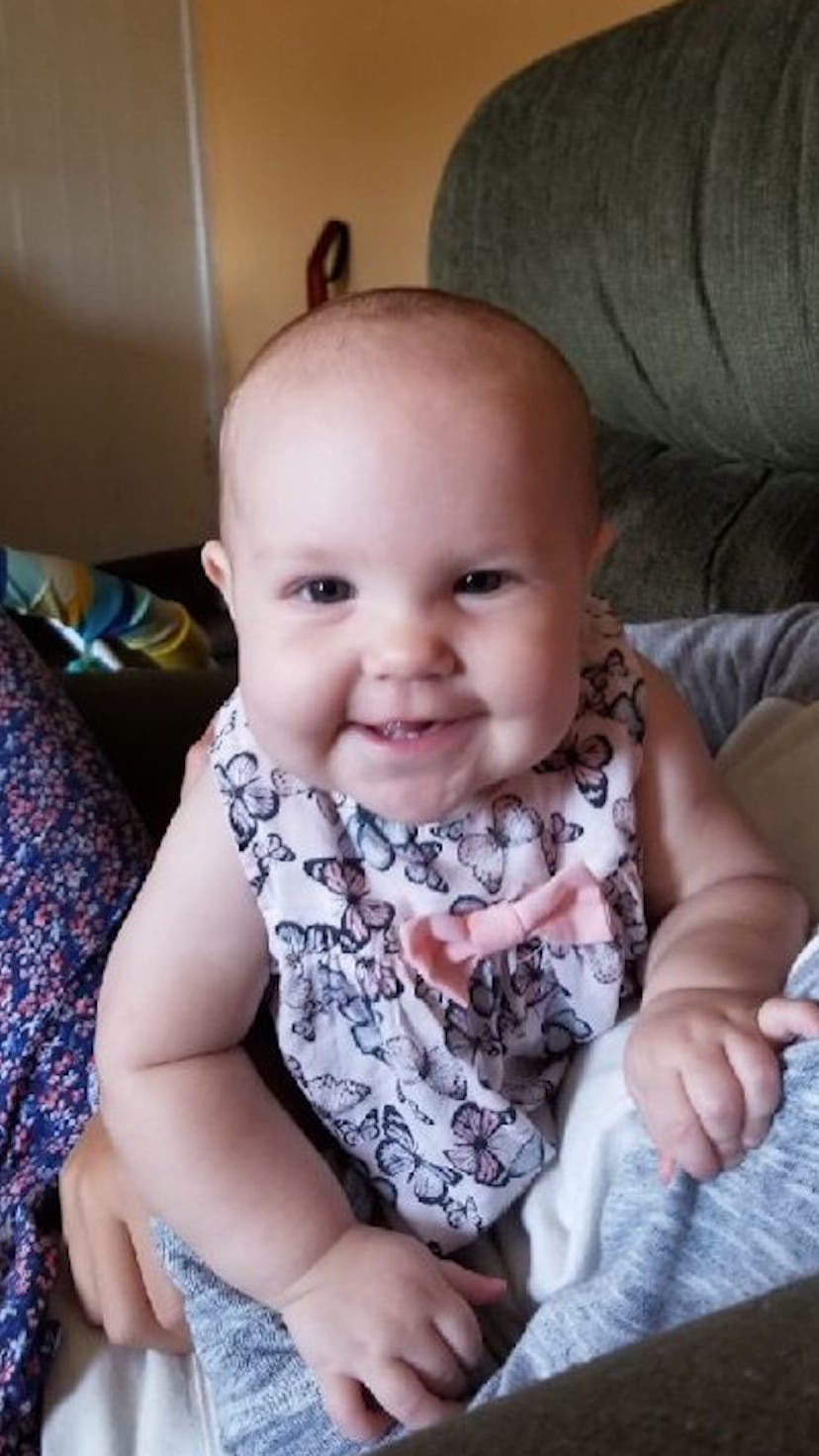News
Millennials On SNAP Say Trump’s “Blue Apron” Boxes Humiliate Them (& Their Children)

Chelsea*, a 26-year-old nursing assistant and single mother in Pennsylvania, is one of the 42 million Americans who benefits from the Supplemental Nutrition Assistance Program (SNAP), the national program formerly known as food stamps, that provides financial assistance for low-income Americans to purchase food.
"I buy bulk meat. I'm a fruit sniffer. I dig through the vegetables to get the best ones," Chelsea tells Bustle of the groceries she buys for herself and her almost 2-year-old daughter.
But under a proposal in President Trump's budget, that could change. Many SNAP participants would receive half their benefits in the form of a "Harvest Box" — non-perishable products, all selected by the government and all canned, packaged, or bottled.
"I bought fresh vegetables," Chelsea says of the first time she bought groceries with her benefits. "I was able to give my daughter an avocado!" Chelsea works 35 hours a week and makes about $22,000 a year. According to No Kid Hungry, 78 percent of SNAP households are working or have worked within the past year. "There is definitely a stigma," Chelsea says of the program. "When people hear 'food stamps' … they get into an uproar. But it's people like me, who work."
Like Putting A Scarlet Letter On People Who Need Help
Chelsea's concern about the changes are threefold — "I don't want my kid drinking milk that sits on a shelf," Chelsea tells Bustle. Plus, she can currently pay for groceries discreetly using her Electronic Benefit Transfer (EBT) card in the check-out line. To her, the box would be a stigma on her doorstep. "Would I feel comfortable with someone driving by my house and seeing the box? Why would they waste the packaging when I could go down to the grocery store and grab a bunch of oranges myself?"
"I don't want my kid drinking milk that sits on a shelf."
Chelsea's friend, Laura Slenker, a 32-year-old who is also on SNAP, echoes those concerns. "It's a little humiliating," she says of the boxes. "People are going to see these deliveries being made. It's going to identify you as someone who is struggling."
Building The Bridge Between Struggle And Success
Asia Thompson, a first-year at New York Law School, mother of two, and a former SNAP recipient, calls the boxes "a swift way to take all dignity away from hardworking people who can't afford food."
Advocates worry that the blowback to the boxes, mostly focused on one official's description of a "Blue Apron"-like option, is a distraction from the bigger fight: proposals to cut funding to SNAP by 30 percent over the next 10 years. That's not lost on the women Bustle spoke with.
Asia credits SNAP with helping her "build the bridge" from her 18-year-old self — a mother with two small children who just had departed an abusive relationship — to where she is today, a college graduate pursuing her law degree. "It's been the bridge between being able to go to school and get myself in a position where I am able to further myself."
"I had to choose between whether I wanted buy the nebulizers for my kids or buy them food for the week."
Both of Asia's children are asthmatic; her son has ADHD. "I had to choose between whether I wanted buy the nebulizers for my kids or buy them food for the week," she tells Bustle. "SNAP alleviated a lot of those situations where I was choosing between two very necessary things."
The Real Message Trump Is Sending Hungry Families
Chelsea didn't vote in the 2016 presidential election, but her grandparents were both "major Trump supporters." She liked his nationalism and his promises to make America great again. But his recent proposed cuts to Medicaid, Medicare and SNAP have given her pause.
"Is everybody going to get the same thing or is someone going to decide what I deserve?"
"I understand [Trump] is trying to save money, but he's taking away from Americans who are hard working," Chelsea tells Bustle. "I don't think it's fair to make us suffer. Is everybody going to get the same thing or is someone going to decide what I deserve?"
"We pay our taxes, just like everyone else does," Laura tells Bustle. "We're just trying to feed our family."
"No child should ever be hungry," Asia says. "We shouldn't live in a society where it's okay to take food away from children."
*Last name has been omitted to protect their identity.